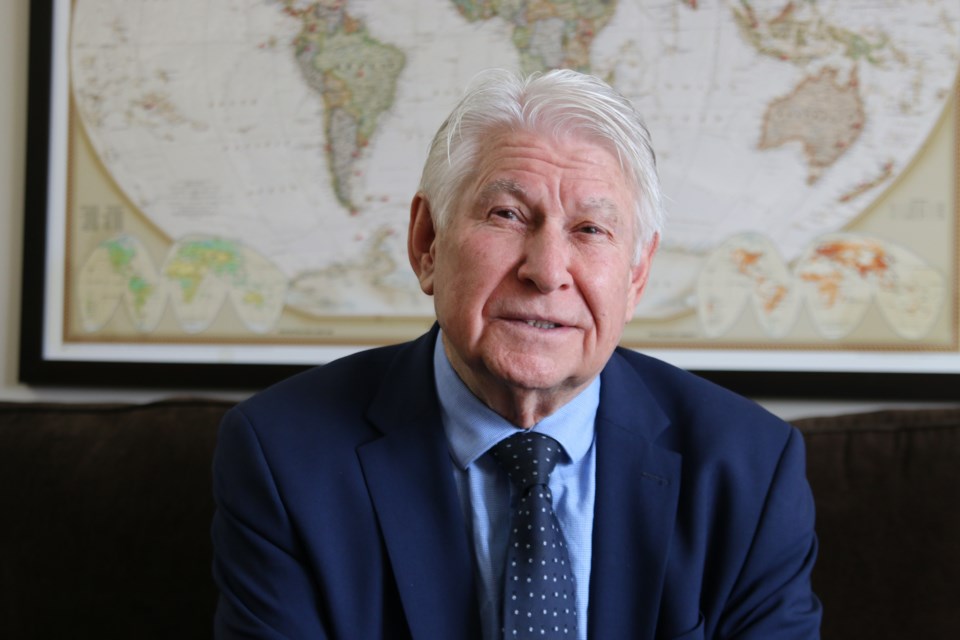THUNDER BAY — Mayor Ken Boshcoff said Canadian border cities shouldn’t be too quick to break ties with neighbours south of the border.
After a conference call with some of the province's big city mayors about the potential trade war between Canada and the United States, Boshcoff said that U.S. mayors along the border are just as concerned about the impacts of the trade war.
He said that Canada is taking on a united front in sending a message to American elected officials that a trade war has no advantages for either country.
“It all has splashback and ramifications. Battling one tariff versus the other puts us at a disadvantage with other world countries,” Boshcoff told Newswatch.
“We want to make sure that we do everything to be on the peacemaking side of this, so that's where we as a municipality are coming from.”
He stated that on a municipal level, counter-tariffs on goods, such as protective chemicals to treat the city's drinking water, could have costly effects.
“For municipal people, it's really ensuring that we don't self-penalize or get involved in things that are going to affect our municipal taxpayer because you need both sides of the border to require protective water treatment systems and the products that go into them on both sides of the border,” said Boshcoff.
“When you're sharing the Great Lakes, we know better than many just how necessary it is to not have additional costs.”
According to Boshcoff, the bottom line for the municipality is to maintain our diplomacy to keep the burden off the taxpayer.
“It's communication. It's letting people know on the other side of the border that we are the last people that they can consider as their enemies or competition. That's capitalism, but that isn't municipal relations so for us. If these two countries can't get together, what about the other 200 countries in the world?” he said.
“So, you got to ask yourself, where is this gonna lead to? It can't be a good thing.”
Boshcoff pointed out that Canada and the U.S. share the Saint Lawrence Seaway, which is a necessary access point for Thunder Bay Port Authority to import and export a good to the Atlantic.
Last year, the Port Authority had a record-setting shipping season, with 432 vessels exporting cargo shipments of grain, potash, and steel.
According to the latest data provided by the port authority, activity in the port contributes $370 million to the city's economy each year and is responsible for maintaining about 1,000 jobs.
“We have to share a transportation system that is the safest system in the world and probably the longest, so I think we're quite used to being peacemakers. I think where we as a city and as a province and as a country have a distinct role to play in trying to get some understanding here,” said Boshcoff.
Upon taking office, Donald Trump fulfilled his campaign promise to sign an executive order to impose a 25 per cent tariff on Canadian goods.
The tariffs, which would have taken effect on Feb. 4, also had a 10 per cent tariff on energy imports.
However, after speaking to Prime Minister Justin Trudeau, Trump put a 30-day suspension on the tariff so that Canada could implement its $1.3 billion border
Last week — despite the promised reprieve — Trump signed an executive order imposing 25 per cent tariffs on all steel and aluminum imported from across the globe, set to start on March 12.
